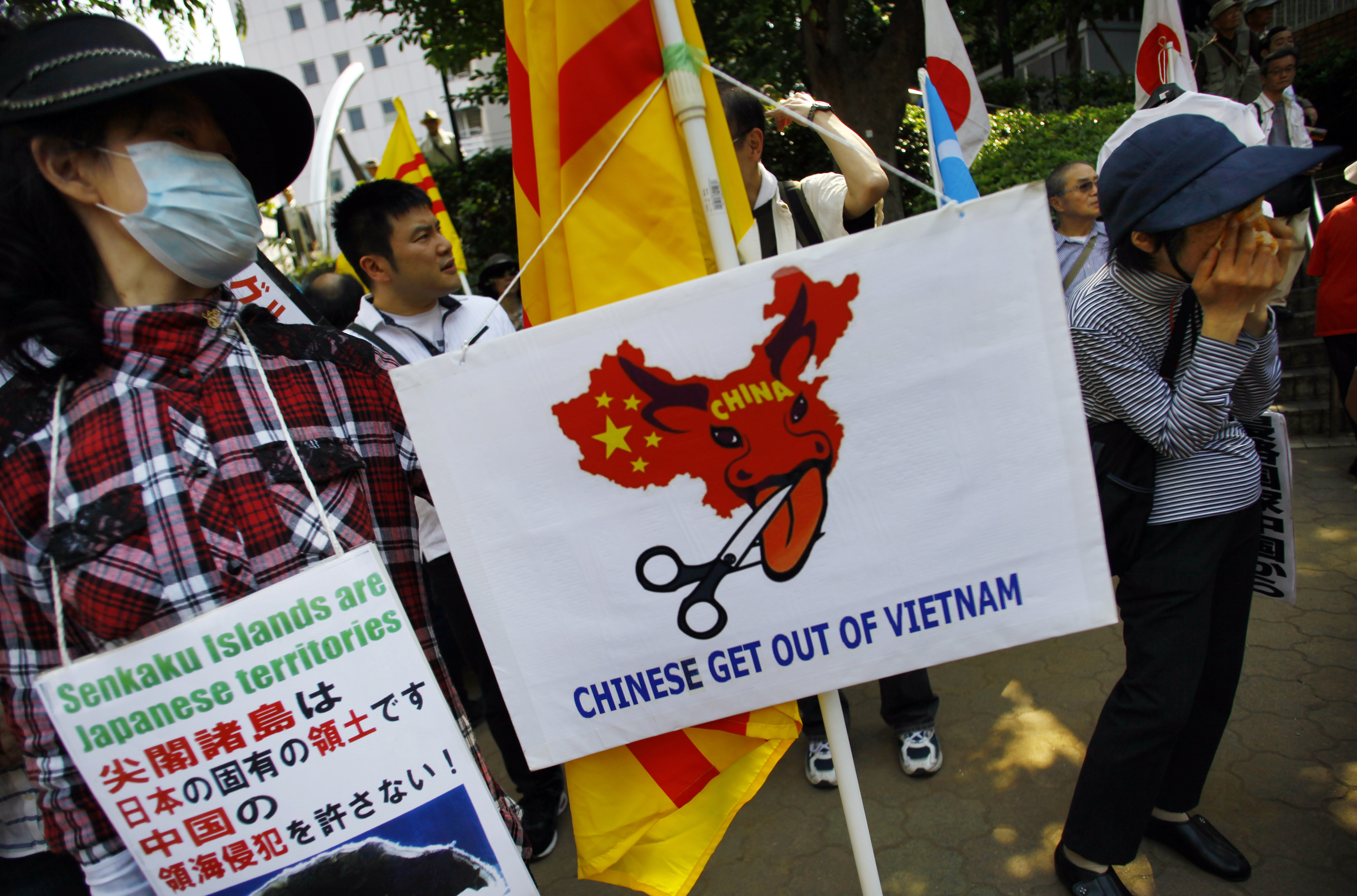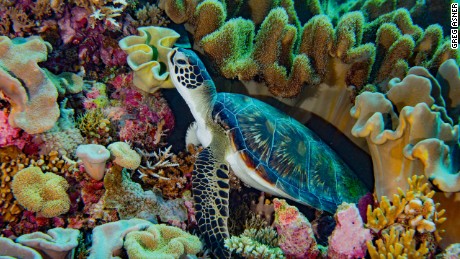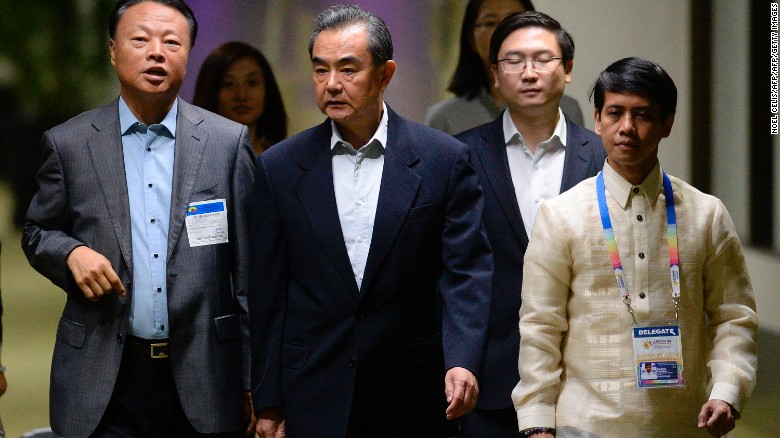- Vietnam isolated as China goes on charm offensive
- Divisions emerge among ASEAN nations

When it comes to the disputed waters of the South China Sea, Vietnam's leaders must feel very lonely these days.
Their fellow Southeast Asian claimants have either reversed course after years of escalating tensions with Beijing, or are keeping their heads down and letting Hanoi take up the fight.
In June, the Vietnamese government refused a Chinese demand to halt drilling by a subsidiary of Spanish company Repsol in an oil and gas block on Vanguard Bank—an area of the seabed that, as far as international law is concerned, is undisputedly Vietnam's.
A month later Hanoi reversed course, after Beijing threatened to use military force against one of its outposts in the South China Sea, which Vietnam calls the East Sea.
Now Vietnam could be on the hook to Repsol for hundreds of millions of dollars and it will have a hard time convincing other companies that any of its offshore contracts are a smart bet.
Repsol didn't respond to a CNN request for comment, and Vietnam's Foreign Ministry said its oil and gas activities take place in waters entirely within its sovereign rights.

Chinese military bases destroy reefs in South China Sea
Deafening silence
How did Vietnam's neighbors and the international community respond to this act of bullying by China?
With deafening silence.
After pushing back against Chinese coercion for years, the Philippines has turned defeatist under the year-old government of Rodrigo Duterte.
After pushing back against Chinese coercion for years, the Philippines has turned defeatist under the year-old government of Rodrigo Duterte.
Manila now appears eager to trade silence regarding its maritime claims for economic carrots from Beijing.
Malaysia, whose government is embroiled in corruption and is barreling toward political crisis in the next general election, has little appetite for confrontation with China, an important benefactor.
And Indonesia is happy to occupy a middle ground, resisting at the margins when it comes to Chinese fishing encroachments in its waters, but uninterested in taking a more active role in the disputes.
Even Singapore, which remains deeply skeptical of China's long-term intentions, is keeping its head down after being made a diplomatic punching bag by Beijing for its perceived support of the Philippines' international arbitration victory last July.
Divisions on display
The divisions within Southeast Asia were on full display during the Association of Southeast Asian Nations (ASEAN) Foreign Minister's Meeting earlier this month.
The 10 ASEAN ministers spent several days arguing over how the South China Sea disputes should be addressed in their customary joint declaration.
The Philippines, which hosted the summit, and Cambodia wanted to strip out anything that could irritate China.
Malaysia, whose government is embroiled in corruption and is barreling toward political crisis in the next general election, has little appetite for confrontation with China, an important benefactor.
And Indonesia is happy to occupy a middle ground, resisting at the margins when it comes to Chinese fishing encroachments in its waters, but uninterested in taking a more active role in the disputes.
Even Singapore, which remains deeply skeptical of China's long-term intentions, is keeping its head down after being made a diplomatic punching bag by Beijing for its perceived support of the Philippines' international arbitration victory last July.
Divisions on display
The divisions within Southeast Asia were on full display during the Association of Southeast Asian Nations (ASEAN) Foreign Minister's Meeting earlier this month.
The 10 ASEAN ministers spent several days arguing over how the South China Sea disputes should be addressed in their customary joint declaration.
The Philippines, which hosted the summit, and Cambodia wanted to strip out anything that could irritate China.
But Vietnam, smarting from the Vanguard Bank incident and convinced that China's diplomatic softening over the previous year was just a delaying tactic, argued for stronger language.
Its tactics got it singled out in a China Daily editorial, which slammed Hanoi for "hypocritically trying to insert tough language criticizing China's island building."
Late on Sunday, the group reached a compromise that reinserted several points from previous ASEAN statements, including concern over recent land reclamation and militarization.
The comprise language in the communique was weaker than some previous statements, particularly the Sunnylands Declaration signed by ASEAN leaders and President Barack Obama in 2016.
But it was stronger than the group's last statement, issued by Duterte following the ASEAN Summit in April, and helped avoid a repeat of the group's 2012 debacle when then-host Cambodia blocked the release of any statement at all.
Modest victory
Hanoi paid a diplomatic price for its activism, with China's foreign minister Wang Yi canceling a planned bilateral meeting with his Vietnamese counterpart.
Still, Vietnam had won a modest victory and received a measure of support, even if grudgingly, from its neighbors.
Its tactics got it singled out in a China Daily editorial, which slammed Hanoi for "hypocritically trying to insert tough language criticizing China's island building."
Late on Sunday, the group reached a compromise that reinserted several points from previous ASEAN statements, including concern over recent land reclamation and militarization.
The comprise language in the communique was weaker than some previous statements, particularly the Sunnylands Declaration signed by ASEAN leaders and President Barack Obama in 2016.
But it was stronger than the group's last statement, issued by Duterte following the ASEAN Summit in April, and helped avoid a repeat of the group's 2012 debacle when then-host Cambodia blocked the release of any statement at all.
Modest victory
Hanoi paid a diplomatic price for its activism, with China's foreign minister Wang Yi canceling a planned bilateral meeting with his Vietnamese counterpart.
Still, Vietnam had won a modest victory and received a measure of support, even if grudgingly, from its neighbors.
But the victory was short-lived.
The next day, Philippine foreign secretary Alan Peter Cayetano sided with China, telling the press,"I didn't want to include it. It's not reflective of the present position. They (China) are not reclaiming land anymore. So why will you put it again this year?"
It was a surprising break for an organization built on consensus.
The next day, Philippine foreign secretary Alan Peter Cayetano sided with China, telling the press,"I didn't want to include it. It's not reflective of the present position. They (China) are not reclaiming land anymore. So why will you put it again this year?"
It was a surprising break for an organization built on consensus.
Here was the group's chair publicly airing disagreements with the supposed consensus and appearing to back an outside power over a fellow ASEAN member.

Wang Yi arrives in Manila on August 5, 2017 to attend the ASEAN meeting, where Vietnam urged other Southeast Asian nations to take a stronger stand against Chinese expansionism in the South China Sea.
One-two punch
The one-two punch of China's successful coercion over Vanguard Bank and ASEAN's tattered consensus in Manila has left Hanoi exposed.
That isolation, which has been building for months, helps explain why Defense Minister Ngo Xuan Lich arranged a visit to Washington on the heels of the ASEAN meetings.
Following his meeting with Defense Secretary James Mattis, the Pentagon announced that the two had "agreed to deepen defense cooperation, including by expanding maritime cooperation."

Wang Yi arrives in Manila on August 5, 2017 to attend the ASEAN meeting, where Vietnam urged other Southeast Asian nations to take a stronger stand against Chinese expansionism in the South China Sea.
One-two punch
The one-two punch of China's successful coercion over Vanguard Bank and ASEAN's tattered consensus in Manila has left Hanoi exposed.
That isolation, which has been building for months, helps explain why Defense Minister Ngo Xuan Lich arranged a visit to Washington on the heels of the ASEAN meetings.
Following his meeting with Defense Secretary James Mattis, the Pentagon announced that the two had "agreed to deepen defense cooperation, including by expanding maritime cooperation."
They even confirmed plans for a US aircraft carrier to visit Vietnam in the future—something that would have been unthinkable just a few years ago.
Hanoi remains convinced that China's new charm offensive in the South China Sea is mostly smoke and mirrors—a conclusion strengthened by its recent experiences—and that sooner or later its neighbors will figure it out too.
Hanoi remains convinced that China's new charm offensive in the South China Sea is mostly smoke and mirrors—a conclusion strengthened by its recent experiences—and that sooner or later its neighbors will figure it out too.
In the meantime, it will look for support wherever it can find it.
Aucun commentaire:
Enregistrer un commentaire